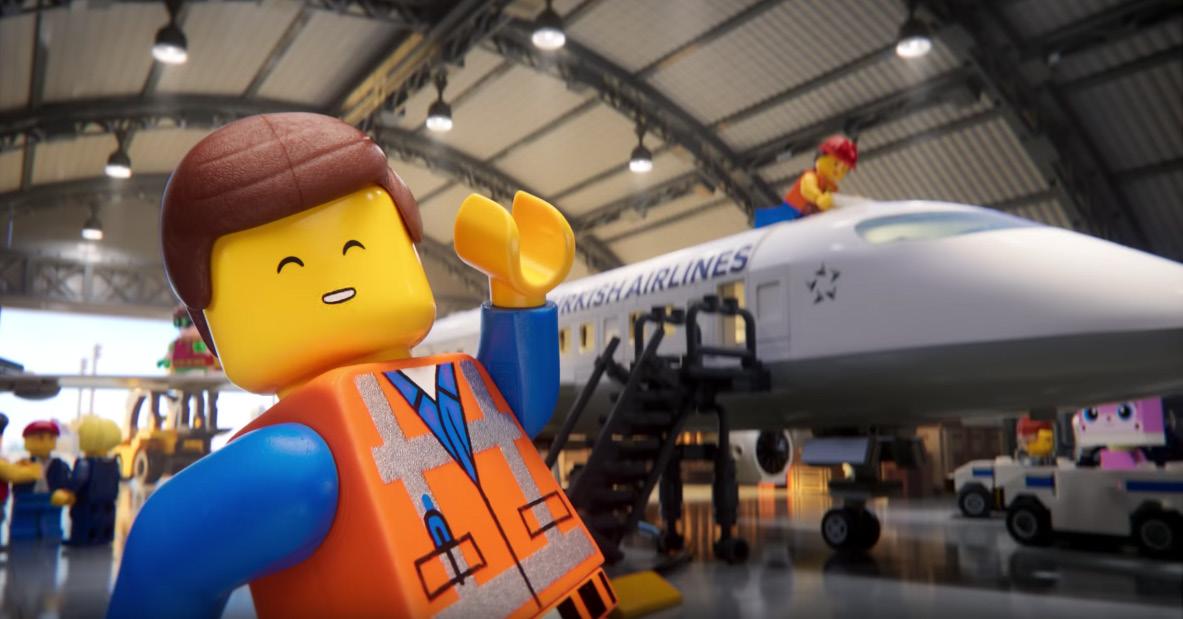
7 minute read
THE ISABELLE KUMAR CASE (EMIRATES) AND THE SPECIAL OLYMPICS (UNITED)
THE ISABELLE KUMAR CASE (EMIRATES) AND THE SPECIAL OLYMPICS (UNITED)
Emirates orders family with disabled child to get off flight
Advertisement
In late July Emirates was the subject of negative coverage in media worldwide after airline staff at Dubai International Airport forced the family of Euronews TV presenter Isabelle Kumar to get off a flight about to leave for Lyon. The family had stopped in Dubai after an earlier flight from New Zealand.
Staff had demanded to see a medical certificate for Isabelle Kumar’s son, Eli, who has epilepsy, autism and severe learning difficulties. Kumar had her Doctor email through the certificate, and the Dr also offered to speak to the cabin crew. However the family was still ordered to leave the aircraft, to the considerable distress of Eli.
Emirates subsequently apologised to the family and put them on a later flight to Geneva. However speaking to Euronews, Isabelle Kumar claimed the airline had shown no contrition and called it a “slightly robotic apology.”
Emirates also issued a statement to Euronews saying that “Emirates did not discriminate against Ms Kumar and her son in any way. Emirates followed the standard policies applicable for all medical cases.”
At time of writing, this incident shows no signs of dying down, with Isabelle Kumar tweeting the chairman of Dubai Airports and the Emirates Group, accusing Emirates of distorting the facts.
In fact, as of July 31st, there were 157 articles on Google News about this, with Isabelle Kumar keeping her Twitter following abreast of developments, and many of her followers now saying they will no longer fly Emirates.
We are fans of Emirates, and have covered their campaigns in the past, but
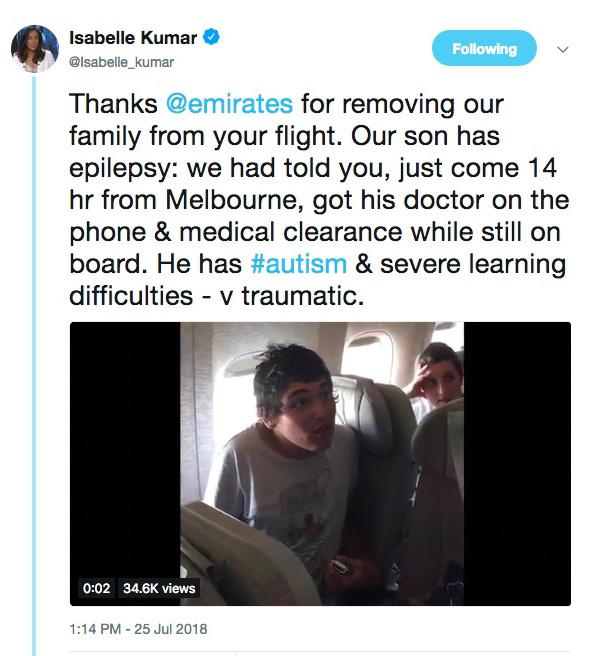
here we are surprised that the airline allowed this to spiral like this.
The incident also shows some of the challenges families with family members with intellectual disabilities face and the importance of providing appropriate staff training.
One airline which recognises that is United Airlines. United Airlines has been a global partner of the Special Olympics since 2017.
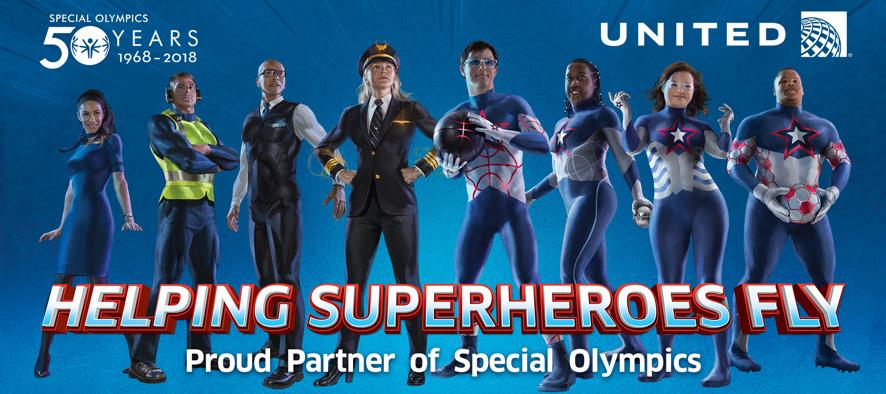
United Airlines Superheroes
Most recently that included being a gold sponsor of the Special Olympics USA Games in Seattle in July.
CEO, Oscar Munoz, joined a group of employees in greeting nearly 700 arriving athletes, coaches and volunteers at Seattle’s SeaTac International Airport (SEA). The airline had earlier flown four Special Olympics Athletes to take part in a new version of its ‘Superheroes’ themed ad.
We originally covered the Superheroes campaign in January, when United Airlines unveiled it for the 2018 Winter Olympic and Paralympic Games. This new treatment carried the strapline, “helping Superheroes fly, proud partner of the Special Olympics.” One of the athletes who starred in the ad, 19 year old swimmer Nicolette Jones was surprised with the ad when she arrived in Seattle, with the Special Olympics filming her delight and reaction.
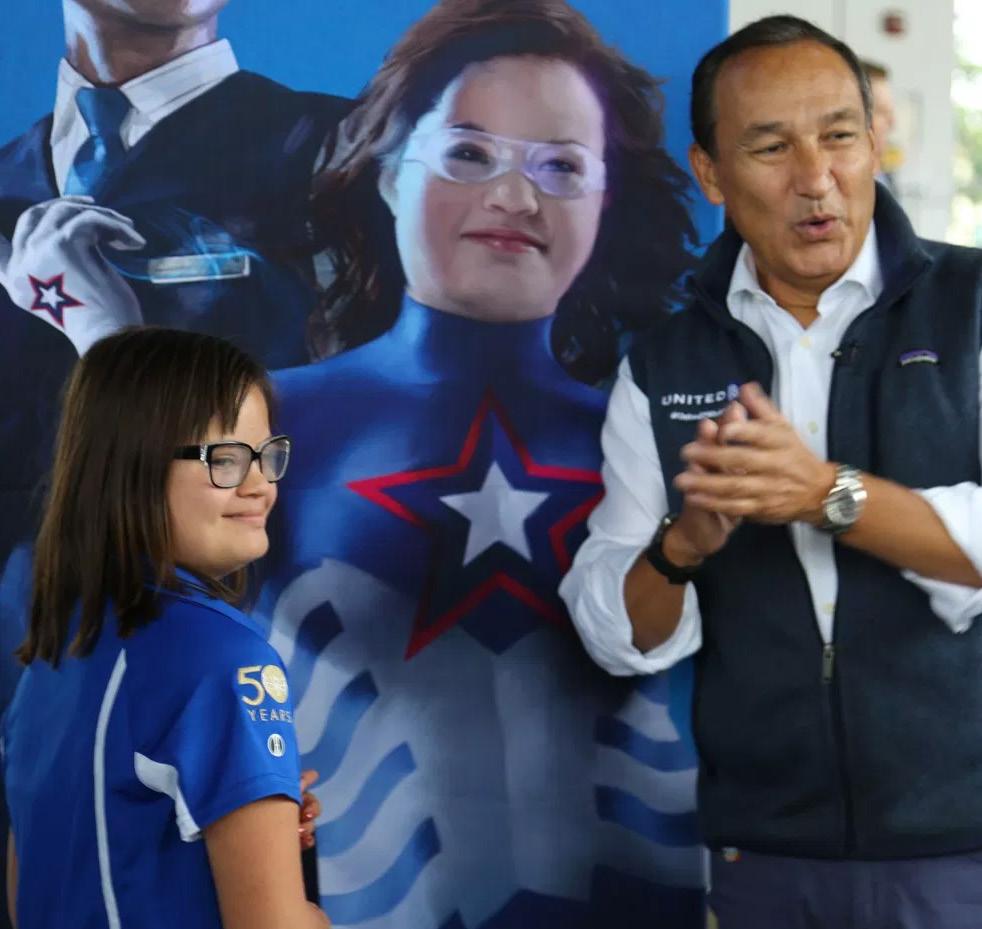
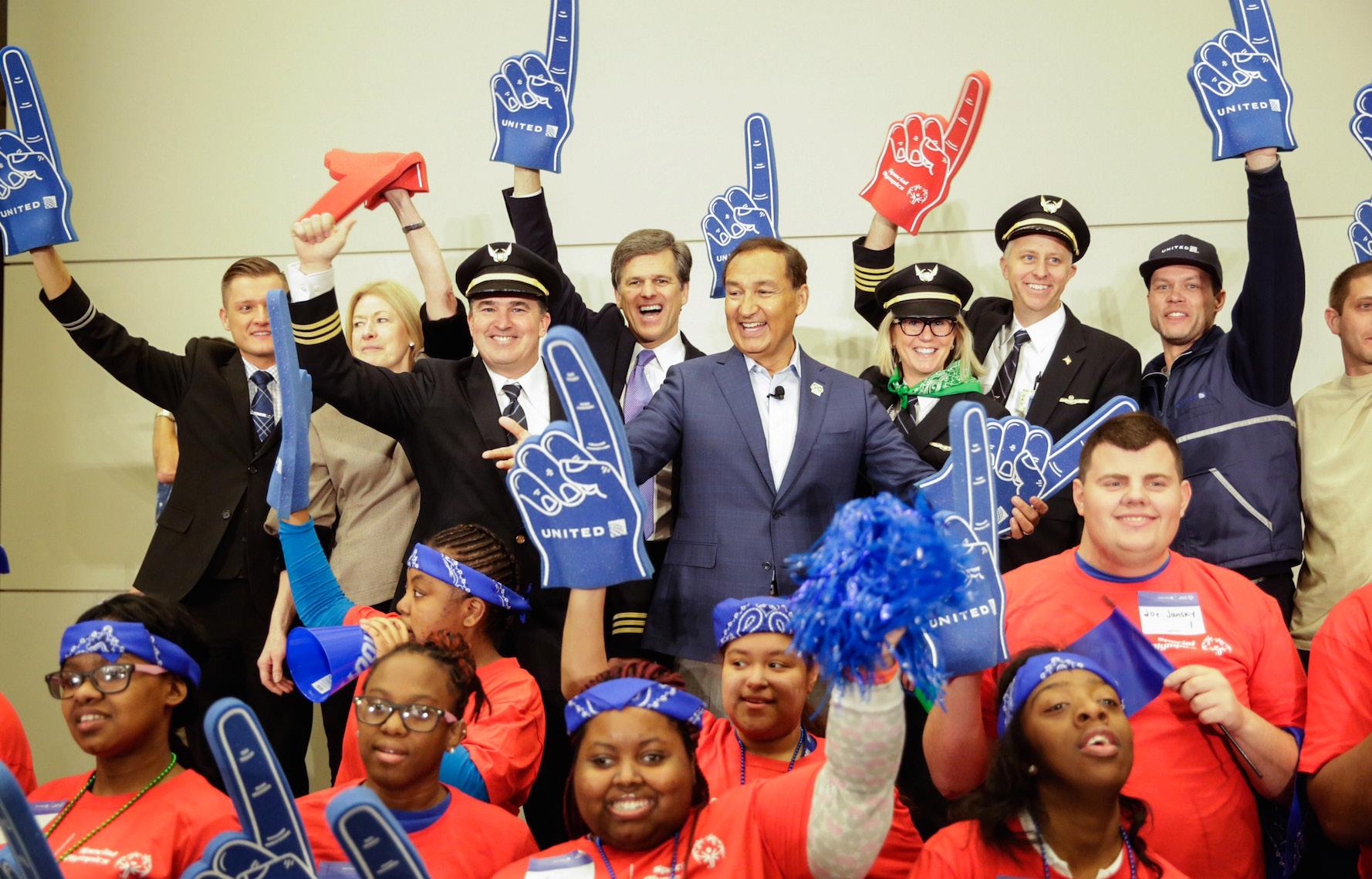
Training for 60,000 staff
Perhaps the most impressive part of United’s support for the Special Olympics is what Business Insider called “a groundbreaking plan to help passengers with disabilities.”
The airline has committed to training its 90,000 staff on “how to make flying for individuals with intellectual disabilities a more pleasant experience.” By the end of 2018 60,000 United staff will have gone through the training programme.
United has also created a hub on the its website showcasing its work with the Special Olympics, complete with videos, pictures of the athletes involved in the ad campaign, and news stories.
Key takeaway, be careful when hiding behind the rules
United has of course been at the receiving end of some very bad publicity over the past eighteen months. Meanwhile Emirates is an airline that usually has an excellent brand reputation.
However in this case Emirates got it wrong and United is getting it right.
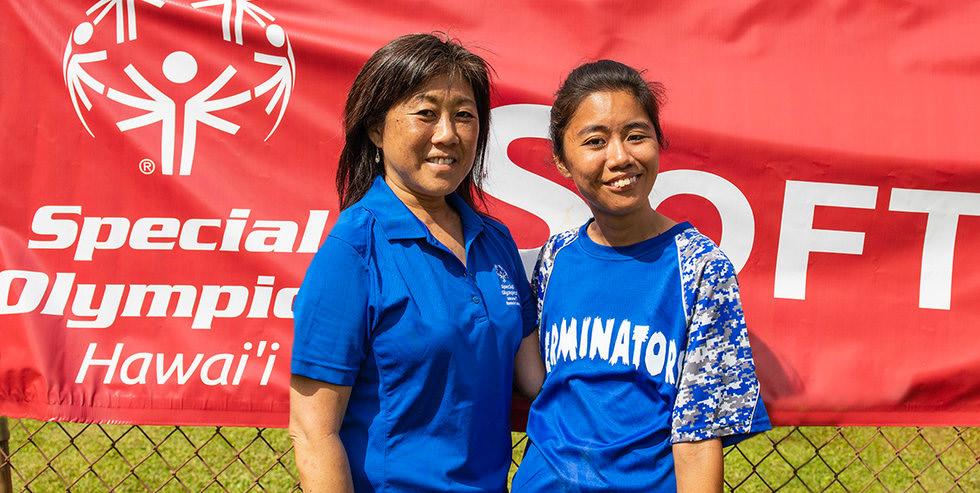
Speaking to Business Insider Oscar Munoz claimed that the training programme for staff “ isn’t about commercial valuation. This isn’t about anything like that. This is something that’s always been near and dear to many of our employees.”
Actually, we’d argue there is very much commercial sense in this.
Over 1 in 100 people in many countries now have autism, so it simply makes sense to equip staff with the know-how and understanding to deal with passengers with intellectual disabilities so that you can avoid the kind of situation Emirates faced.
So back to Emirates, what should the airline have done?
Emirates may well have been correct that it operated within the rules, but the problem with quoting the rulebook is that it can make you look wooden and impersonal. Ideally every incident like this should be looked at, with the question asked how it’s going to play out if not decisively dealt with.
A better way forward might have been a more personal response. For example, a call from a senior executive expressing sympathy and a willingness to help, assistance from an Emirates ‘concierge’ at DXB, and possibly even a flight voucher to be used at a later date.
We’d then have recommended a statement about commitment to passengers with both physical and intellectual disabilities as well facts around it (e.g. ‘Emirates is proud to carry XX,000 thousand disabled passengers, here is the help we provide…”).
A solution like that would have almost certainly have taken the sting out of the incident and might even have resulted in positive responses to an initially negative incident.
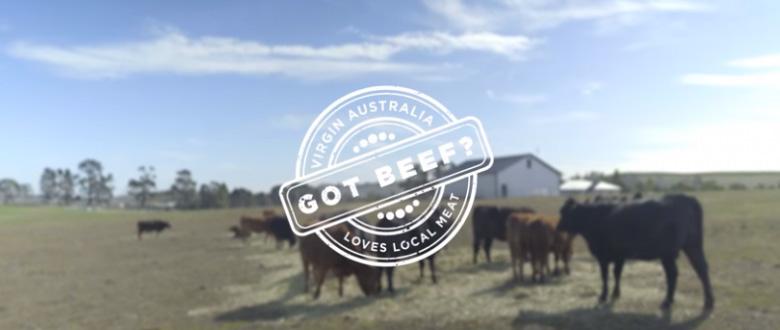
Last month we covered Air New Zealand introducing the (meat free) Impossible Burger on flights from LAX to Auckland.
Though most of the reaction was positive, some politicians and farming groups in New Zealand accused the airline of harming the country’s beef industry by stocking a product which claims to be a vegetarian alternative that tastes, smells and even sizzles like the real thing.
Enter Virgin Australia, which capitalised on the controversy by launching a search for New Zealand’s best beef, which will be served on all NewZealand to Australia flights.
Virgin Australia says that the end result will actually be a bespoke dish, “designed to showcase the quality of local New Zealand produce.”
The aim is to make the winning dish available to passengers on trans-Tasman flights as soon as October.
41 | Airline Marketing Monthly - August 2018 As well as running its search for the best New Zealand beef, Virgin Australia has been taking its “Battle of the Burgers” (the New Zealand Herald) to the streets of Auckland. On August 1st, it teamed up with iconic burger bar “The White Lady” to give away 500 burgers.
Virgin Australia has even managed to get Kiwi politicians sounding off about the beef issue (again).
MP Mark Patterson, who had originally expressed outrage at Air New Zealand’s “Impossible Burger” move, came out supporting Virgin Australia. In a press release he is quoted as saying:
“Good on the Aussies for recognising our world class beef and lamb, and I am delighted that our produce is being promoted by our closest neighbours. It’s great to see an airline backing our Kiwi beef farmers.”
“A win-win”
In an interview with New Zealand news website The Spinoff, Patterson admits that the whole thing is something of a marketing stunt. The whole thing is “potentially a little bit opportunistic, but it’s a win-win. If they’re prepared to showcase our top-quality premium New Zealand red meat, then who are we to argue against it?”
A win-win is how we see it as well. Virgin Australia has come up with a clever campaign, that must have been a lot of fun to develop.
We liked how Virgin Australia reacted quickly but also thought about how to bring the campaign to life outside of social media, for example through the burger give-away in Auckland.
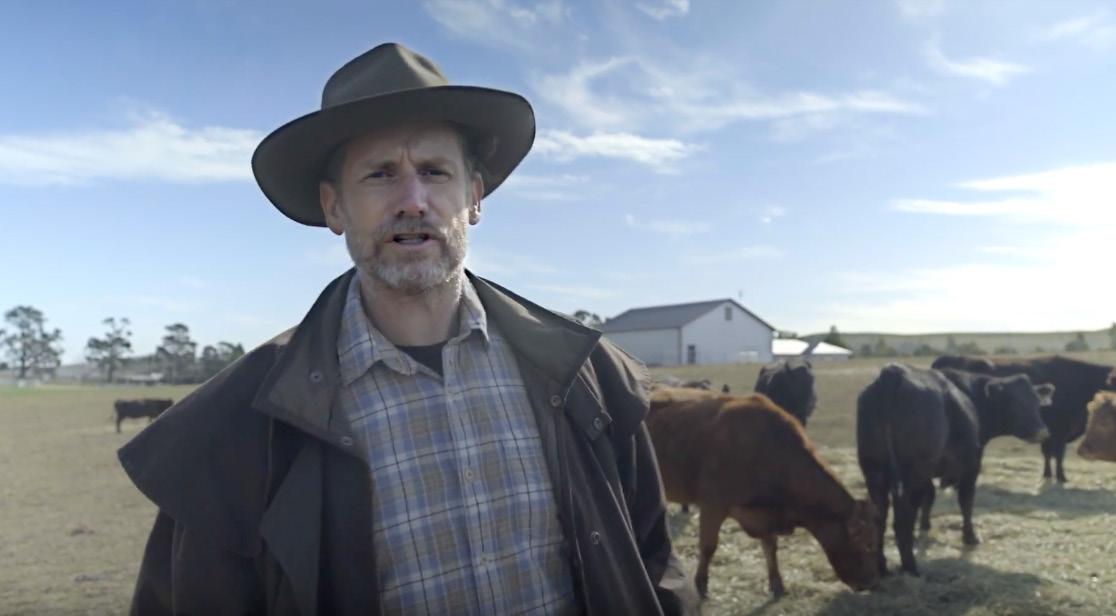
There are also a number of further exploitation opportunities, from when the winning farmer / supplier is chosen to when the dish is unveiled on-board. As a result, Virgin Australia can keep on getting value from this campaign for months to come.
Meanwhile it’s not necessarily a bad thing for Air New Zealand either. By now your mind will be made up - you’ll either love or hate the fact that the airline is stocking a meat free burger.
However what this does is keep the Impossible Burger / Air New Zealand collaboration in the public eye.








